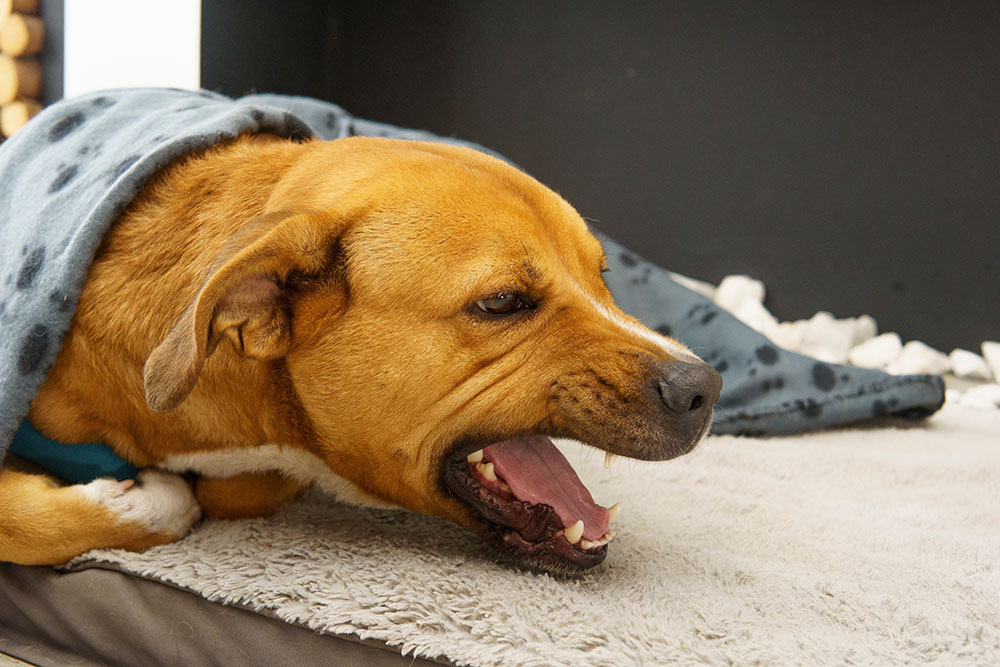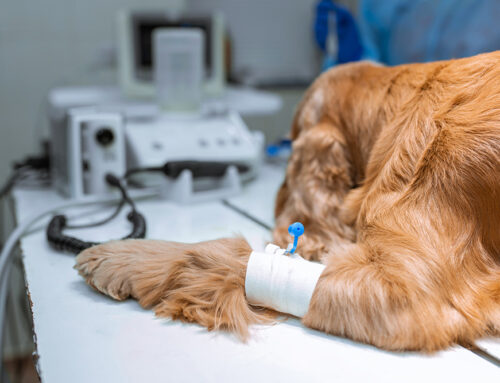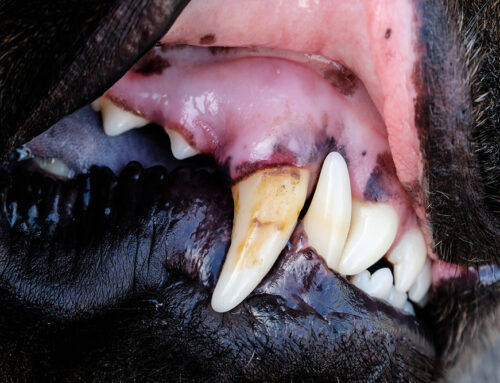When Your Dog Starts Coughing: What to Know About Kennel Cough
A deep, honking cough that sounds like something caught in your dog’s throat is often the hallmark of kennel cough. While most cases are mild, the infection spreads easily and can progress to pneumonia in puppies, seniors, or dogs with weakened immune systems. Recognizing the signs early and taking preventive steps- like vaccination and prompt veterinary care- helps keep your dog and the community safe.
At Creature Comforts Veterinary Service, our AAHA-accredited team provides complete respiratory care for dogs, including accurate diagnosis, targeted treatment, and guidance to prevent future infections.
Understanding Canine Infectious Respiratory Disease Complex
“Kennel cough” refers to a group of highly contagious respiratory infections known as canine infectious respiratory disease complex (CIRDC). Canine infectious respiratory disease (kennel cough) stems from multiple viruses and bacteria producing similar symptoms.
The infection spreads through respiratory droplets when dogs cough or sneeze, direct contact during play, or contaminated surfaces such as shared bowls or toys. High-risk settings include boarding, daycare, grooming, training, and dog parks- anywhere dogs gather. Because kennel cough spreads easily, even brief exposure can cause infection, especially in crowded or poorly ventilated spaces.
Recognizing the Telltale Signs
Dogs with kennel cough typically develop a harsh, honking cough that worsens with excitement, exercise, or neck pressure from a collar.
Common symptoms include:
- Persistent dry, honking cough
- Gagging or retching, sometimes producing white foam
- Watery nasal or eye discharge
- Mild fever or lethargy
Most dogs remain alert and continue eating, but it’s crucial to distinguish a mild cough from serious respiratory distress. Signs like open-mouth breathing, pale or blue gums, or rapid, shallow breaths require immediate veterinary attention.
What Causes Kennel Cough
Multiple pathogens contribute to CIRDC. The bacteria Bordetella bronchiseptica is most common, but viruses such as parainfluenza, canine adenovirus type 2, distemper, influenza, and respiratory coronavirus also play roles.
Infections often start with viruses that weaken airway defenses, allowing bacteria to take hold. Stress, poor ventilation, and cold, dry air increase risk by weakening the immune system and concentrating infectious particles. Dogs usually develop symptoms two to ten days after exposure and can spread the infection before signs appear.
How Kennel Cough Spreads
Because the disease is so contagious, isolation is essential once symptoms appear. Avoid all dog-to-dog contact- no daycare, boarding, grooming, or park visits- until cleared by your veterinarian.
At home, separate the sick dog from others, wash hands after handling, and disinfect bowls, bedding, and toys. Most dogs remain contagious for one to two weeks.
Facilities caring for multiple dogs should follow strict cleaning and isolation protocols to prevent outbreaks.
When Kennel Cough Becomes Serious
Most cases resolve naturally, but some progress to pneumonia, especially in puppies, seniors, or dogs with weak immune systems. Warning signs include fever, loss of appetite, colored nasal discharge, and severe lethargy.
Difficulty breathing (dyspnea) is always an emergency. If your dog struggles for breath, has blue gums, or collapses, contact our emergency service immediately. Our 24/7 care ensures fast stabilization and treatment.
How Veterinarians Diagnose It
Diagnosis begins with a history of exposure to other dogs and a thorough physical exam. Gently pressing the trachea often elicits the classic cough.
In straightforward cases, diagnosis is based on symptoms and history. Our advanced diagnostics are used for complex cases or suspected complications.
Chest X-rays rule out pneumonia, while PCR panels identify specific pathogens. Bloodwork may assess infection and inflammation levels, especially if the illness lasts longer than expected.
Treatment, Recovery, and Returning to Normal
Most cases of kennel cough resolve within one to three weeks with supportive care. Rest, hydration, and patience go a long way in helping your dog recover comfortably. Keep your pet calm, avoid strenuous activity, and use a harness instead of a collar to minimize pressure on the trachea.
Cool-mist humidifiers or brief bathroom steam sessions can soothe irritated airways, while encouraging regular water intake helps keep mucus thin and easier to clear. Your veterinarian may prescribe cough suppressants or mild anti-inflammatories to ease discomfort, but antibiotics are reserved for more serious cases involving bacterial pneumonia or secondary infections. Never give human cough medicine- many over-the-counter ingredients are toxic to dogs.
Because kennel cough is contagious, isolation from other dogs is essential until your veterinarian confirms your pet is no longer shedding the infection, usually about two weeks after symptoms improve. Schedule a recheck if coughing persists beyond three weeks or worsens during recovery. Once cleared, reintroduce normal activities gradually, continuing to use a harness to prevent tracheal irritation.
Staying current on vaccines and contacting us at the first sign of coughing- especially after boarding, grooming, or dog park visits- helps protect not only your dog but the entire canine community.
Preventing Kennel Cough
Vaccinations are the best defense. The Bordetella vaccine- available as oral, injectable, or intranasal- reduces severity and transmission. Boosters are typically given every six to twelve months for dogs with regular social contact.
Parainfluenza and adenovirus type 2 protection are included in most core vaccines. Our preventative care program tailors vaccination schedules to your dog’s lifestyle and exposure risk.
Before boarding or daycare, schedule vaccinations at least two weeks ahead for full immunity. Choose facilities with good ventilation and cleaning practices, and avoid crowded spaces during outbreaks.

Can Cats Catch Kennel Cough?
Though uncommon, Bordetella infection in cats can occur, particularly in multi-pet homes or shelters. Infected cats may sneeze or cough and show nasal discharge, fever, or lethargy.
Kittens and immunocompromised cats are most at risk. If your cat develops respiratory symptoms after exposure to a coughing dog, contact us promptly. Keep dogs and cats separated until recovery is confirmed.
Keeping Your Dog Healthy
Kennel cough is common but manageable with early intervention and preventive care. Most dogs recover fully with rest and veterinary guidance, and complications are rare with timely treatment.
At Creature Comforts Veterinary Service, we provide expert respiratory care- from diagnosis to recovery and prevention. Whether your dog needs a Bordetella booster or urgent evaluation, we’re here to help.
If your dog develops a cough after social activities, request an appointment or call us today. Early care protects your pet’s health and helps prevent the spread of infection.







Leave A Comment